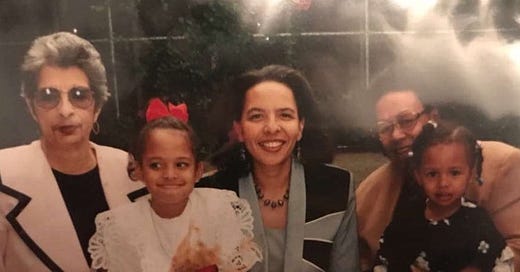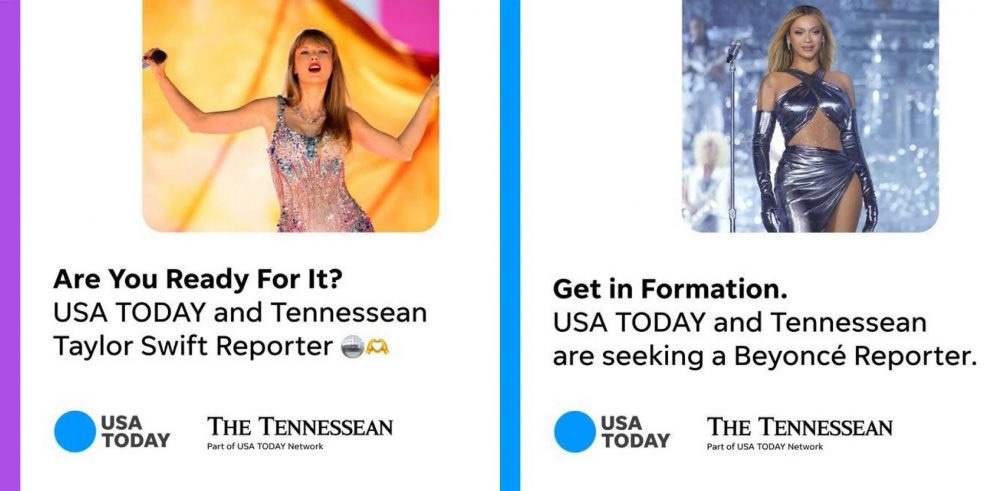Every year, from February 1 to February 14, a Black media outlet looking to increase engagement during a slow news month will recycle some version of these headlines: “Top 10 embodiments of Black Love” or “Celebrating Black Love all Black History Month.” The post will arrange photos of the Obamas, the Knowles-Carters, and Denzel Washington with his wife Pauletta in that order to amass likes, comments, and shares. I know I’m being prompted to awe at the power of Black people marrying other Black people in the United States. I’ll like the photo because Black ciswomen are obligated to like any photo of the Obamas, single or together. But I also will roll my eyes. Black Love feels like Valentine’s Day marketing only for Black people. Cynically, every time I see the term “Black Love,” I add a trademark sign after the “e.” I’m convinced that someone somewhere makes money when it is used. And, I gain nothing as a Black person from its proliferation.
I have been taught by many professors across disciplines to distrust catchall terms. If I cannot descriptively define a term or word or if a word’s meaning seems too fluid, I know the word is too vague to be meaningful. Words like freedom or democracy were examples a history teacher shared with me during my first year of college. Can we define either without resorting to cliché or becoming repetitive in our wording? And Black Love™ definitions make me dizzy. However, that could also be from how many chocolate pastries I consume.
And, you know, who likes words or terms that cannot be easily defined, politicians, lobbyists, or marketing executives, who create catchall terms to disguise intentions. Ron DeSantis transformed the legal framework Critical Race Theory (CRT) into a meaningless catchall for all books, media, and theories that make white people feel bad about their whiteness, according to DeSantis’s base. Social media influencers in the nutrition and wellness space abuse the word “toxic” to describe convenience foods, like potato chips or Oreos, that are physically safe for consumption but do not fit in their costly diet programs. During the Obama era, “hope and change” could have meant anything and everything.
Black Love™ falls into a similar trap. The simplest definition also does not work. Black Love™ does not mean Black people experiencing love. Otherwise, we’d talk about platonic love. The Obamas are always examples of Black Love™. Niecy Nash and Jessica Betts weren’t considered Black Love™ until Essence put the couple on the March 2022 cover. Now, Black women in non-heterosexual marriages can count. Oprah and Stedman get a pass for never marrying in some lists, so rich people in long-term partnerships count. And, Ciara and Russell Wilson have come out on top of the whole Future situation. So they can be included now. Unfortunately, people still throw Claire and Heathcliff Huxtable into the mix. So, the characters that abusers create can be included. Except, why are we lifting up Black celebrities in socially acceptable and federally validated intimate partner relationships?
Exalting marriage and coupledom as a peak expression of Black pride gives me the ick. Using this institution to perform allegiance or nationalism is more American than we realize. On a ride home from work, I listened to a chapter from Jia Tolentino’s essay collection Trick Mirror, which details how wedding culture became more expensive, stressful, and conservative over American history. Tolentino explains how lavish parties, white wedding dresses, engagement rings, and bachelorette parties are not so traditional. Companies hoping to make money and market new goods to American consumers told middle-class Americans that these new inventions were tradition. Wedding bands were sold to married men going off to fight in World War II as a way to remember “wife, country, and home.”
In post-war America, marriage became a step in achieving the American dream that politicians could weaponize against Black families. In 1965, Assistant Secretary of Labor Daniel Patrick Moynihan released a report at the height of the Civil Rights Movement. The Moynihan Report reasons that without addressing economic inequalities, Civil Rights legislation will not do enough to improve African American’s conditions. Instead of analyzing systemic barriers to economic mobility, Moynihan examined the African American family, as he considered the family the “basic social unit of American life.” The report posits that inequalities African American families face stem from Black women outearning men or solo-parenting. By focusing on comparing African American and white family structures, the report ignored how kinfolk networks within Black communities uplifted individuals despite systemic conditions. So Black Love™ seems like Black folks focusing on applying Eurocentric models and not uplifting the creative and culturally significant ways Black communities show love.
Personally, Valentine’s Day always reminds me of my grandmothers. From grade school through college, my maternal grandmother would send me a Valentine’s Day gift. I would come home from school to find a small or medium-sized plush with a note attached at the center of my bed. “Grandma loves you,” she’d pen on a large red card. Since 2020, my sister has taken up this tradition, except instead of plushies, she buys my mom and me matching red pajamas, reusable water cups, or other trinkets to show us she cares. I hope one day to pass on the gesture to kids, grandkids, or nieces in the future so that they can associate the commercialized holiday with familial or soul-deep love.
If you liked this post, try…
Fandom, Stanning, and Culture
About five days ago, two journalism jobs posted then went viral seemingly within the same click. Through USA Today, Gannet looks to hire a Beyoncé and a Taylor Swift reporter to cover those pop singers exclusively. Each reporter would cover new music and other outputs from the stars and the cult of fandom and influence that both continue to cultivate.
Is Katt Williams Okay
I had a different post about New Year’s resolutions scheduled for today, which will be bumped to next week. I have to talk about Katt William’s interview with Shannon Sharpe because there’s a lot to unpack. Despite the interview being entertaining to watch and a great distraction while folding m…







🌹🖤✅